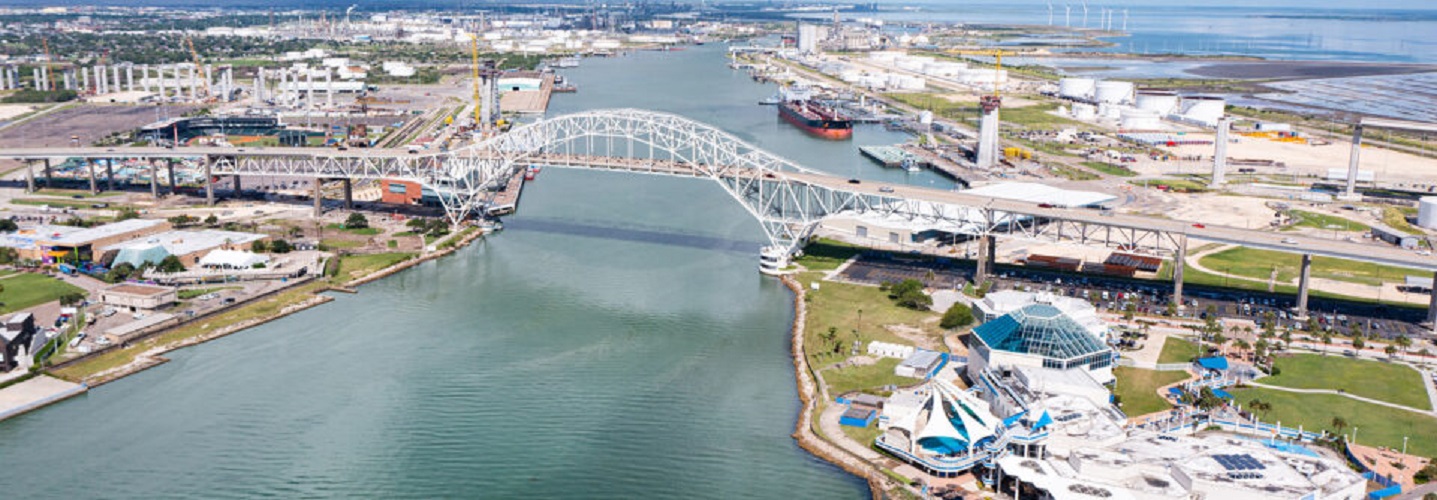The Port of Corpus Christi was awarded $16.4 million through the U.S. Department of Energy’s (DoE) Carbon Storage Assurance Facility Enterprise (CarbonSAFE) initiative to evaluate the technical and economic feasibility of permanently storing captured carbon dioxide (CO2) from industrial operations.

The Port of Corpus Christi was the only recipient of CarbonSAFE funding in Texas and received the largest total award of those announced by the DoE. The two distinctly funded projects include the collection of geologic data onshore under Port-owned property, and under state-owned offshore tracts, respectively. The grants are designed to accelerate the development of a centralized solution to capture and manage CO2 emissions that otherwise would enter the atmosphere and contribute to global warming.
The onshore project received $9 million in federal funding and is a collaboration between the Port of Corpus Christi and Talos Energy Inc. with Howard Energy Partners, as well as the Texas A&M University System.
The offshore project is a collaboration between the Port of Corpus Christi, 1845 Carbon Storage LLC, Strategic Sequestration Development LLC, and the University of Texas Bureau of Economic Geology’s Gulf Coast Carbon Center.
“We applaud the Biden Administration for making such a direct and demonstrative investment in industrial carbon management solutions with the DoE’s CarbonSAFE Program,” said Sean Strawbridge, Chief Executive Officer for the Port of Corpus Christi. “This award is a significant and historic step in the Port of Corpus Christi’s ambition to position the Texas Coastal Bend region as the nation’s premiere carbon management hub, recognizing our customers have already made significant decarbonization commitments to their shareholders and society at large.”
Each of the two proposed carbon capture and storage projects has a goal of storing at least 50 million metric tons of CO2 over a 30-year period. The bulk of the matching funds for the awarded grants will be furnished by the Port of Corpus Christi’s private sector collaborators, with the Port of Corpus Christi’s match coming by way of community benefits programming, including a new PORT-Able Learning Lab and development of decarbonization/climate-specific Science, Technology, Engineering and Math (STEM) curriculum content for Texas schools.
“As Port of Corpus Christi staff and industry partners work in the background to submit a full application for its Horizons Clean Hydrogen Hub, this award from the DoE will accelerate our efforts on another front to support the federal administration’s decarbonization objectives,” said Charles W. Zahn Jr., Port of Corpus Christi Commission Chairman. “This funding represents a gateway to new jobs and new opportunities for our community in an entirely new sector of the clean energy economy.”